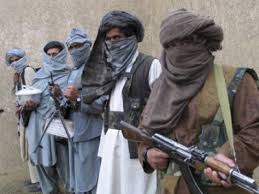Sixteen people have been killed in an apparently sectarian attack on a Shia family south of the Iraqi capital Baghdad.

Eight women and six children are believed to be among the dead.
The attack is only the latest in a string of deadly terrorist attacks carried out by Al Qaeda’s Iraqi branch, targeting the country’s Shia Muslim population, as well as government and military installations.
Only yesterday, a wave of deadly car bombs in Shia neighborhoods of Baghdad left scores dead.
After a relative lull in violence, 2013 has seen one of the bloodiest years in Iraq since the US-led invasion of 2003.
The uptick in violence – particularly towards the local Shia Muslim population – rivals the anti-Shia campaign waged by the founder and former leader of Al Qaeda in Iraq, Abu Musab al-Zarqari, in the years immediately following the overthrow of Iraqi President Saddam Hussein.
Zarqawi was eventually killed in a US Airforce bombing raid, but the brutality of his attacks against Iraqi civilians – both of the Shia majority and members of his own Sunni minority who opposed his campaign – contributed towards a backlash against Al Qaeda which seriously hampered the group’s operations and forced it to “tone-down” its anti-Shia campaign somewhat.
Now, a resurgent Al Qaeda has drawn on the wave of sectarian hatred fueled by the Syrian civil war to increase its operations in Iraq and Syria, merging various Islamist factions in the regions to become the Islamic State of Iraq and al-Shams (Levant) or ISIS.
But this recent attack also illustrates how Al Qaeda is also returning to a more aggressive stance vis-a-vis Shia Muslims, feeding off of popular Sunni anger against the Syrian regime of Bashar al-Assad and its Shia backers in Iran, Iraq and Lebanon.
As global attention is fixed upon the “spillover” of the Syrian conflict to the west of the country – in Lebanon and potentially Israel – such attacks should serve as a reminder of how the far-reaching and deadly consequences of the growing “spillover” from the Syrian conflict extend far beyond.
Source material can be found at this site.









